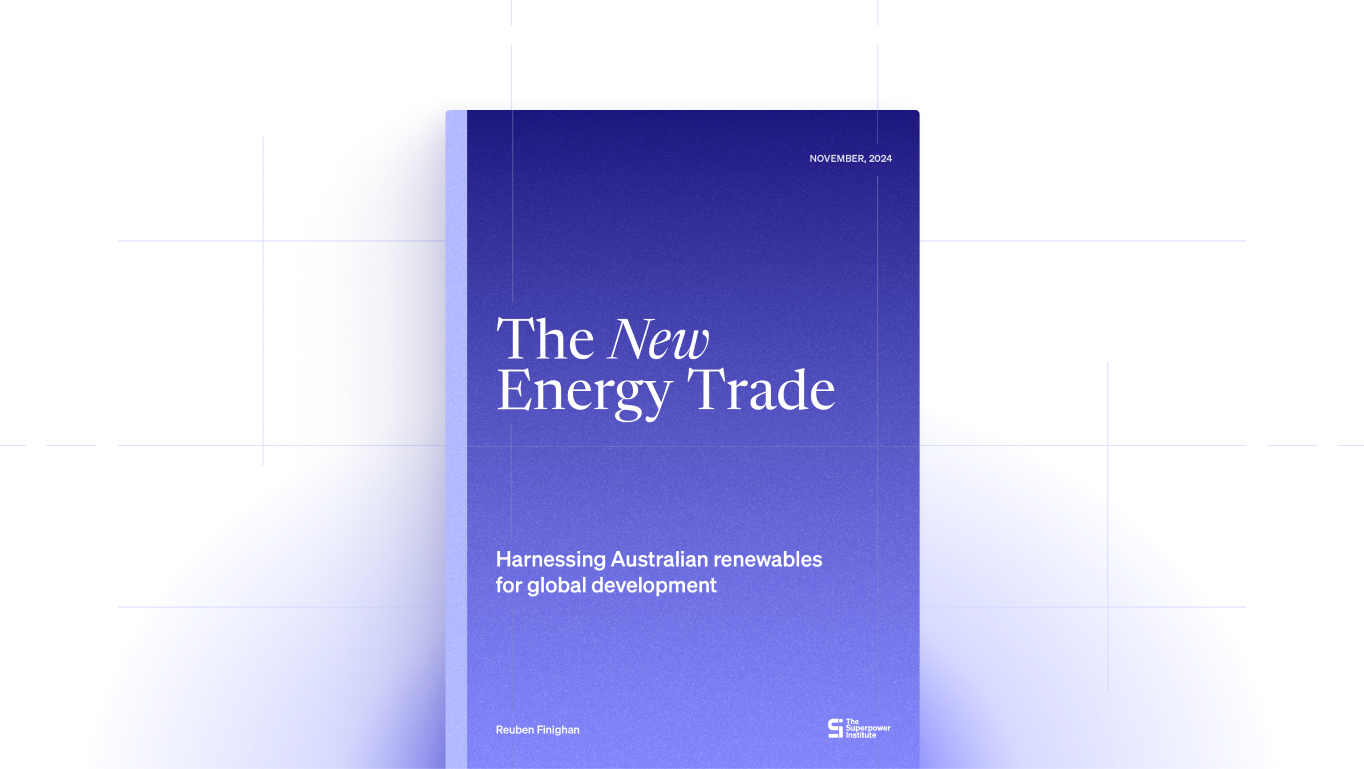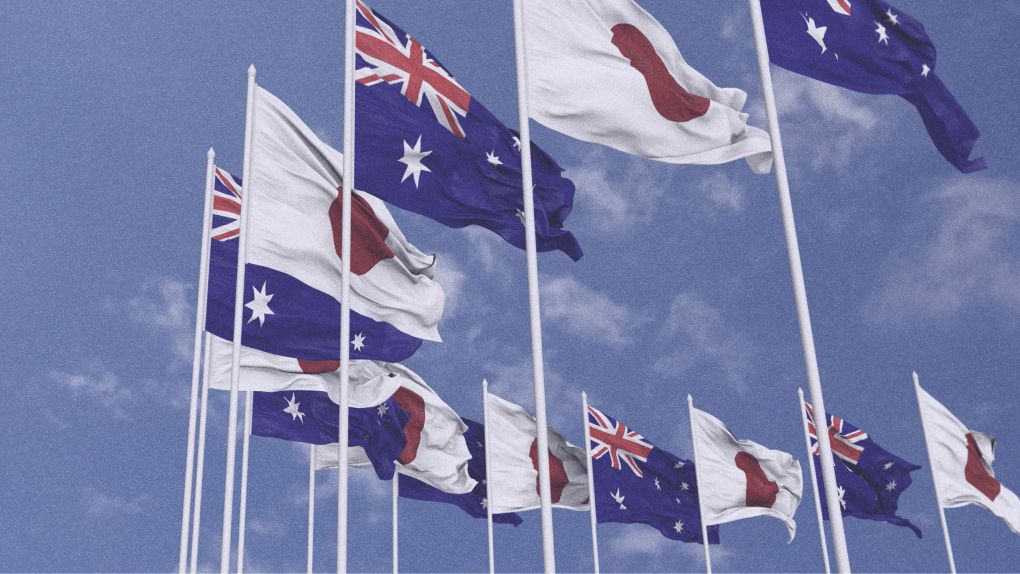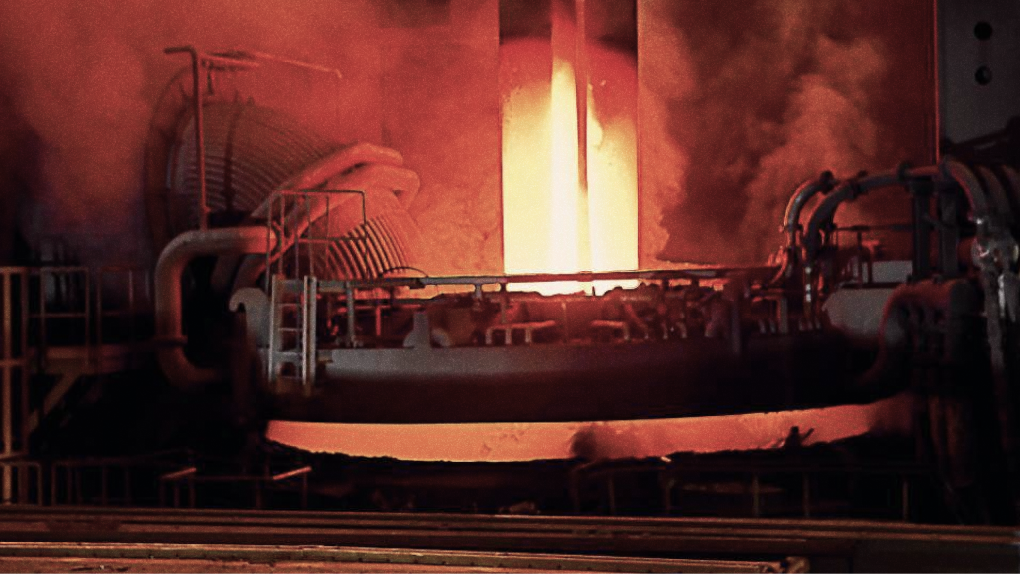Australia stands at a pivotal moment in the global transition to a net zero future. With its unparalleled renewable energy resources, the nation has an extraordinary opportunity to reshape the global energy trade and drive economic growth for decades to come.
The New Energy Trade: Harnessing Australian Renewables for Global Development, authored by Reuben Finighan, Economic Researcher at The Superpower Institute explores how Australia can leverage its vast renewable energy capacity to become a leader in the ‘superpower trade’. This world-first analysis examines the potential for Australia to export green energy-intensive goods – such as green iron, steel, aluminium, silicon and ammonia – that embed clean energy into essential materials for the global economy.
Reuben Finighan, The New Energy TradeIn most major economies, there will not be enough cheap clean energy available to meet demand by mid-century.
This is Australia’s opportunity to contribute to global climate mitigation, and to benefit from large scale exports.
Bridging the supply-demand gap in China, India, Japan, Korea and Germany
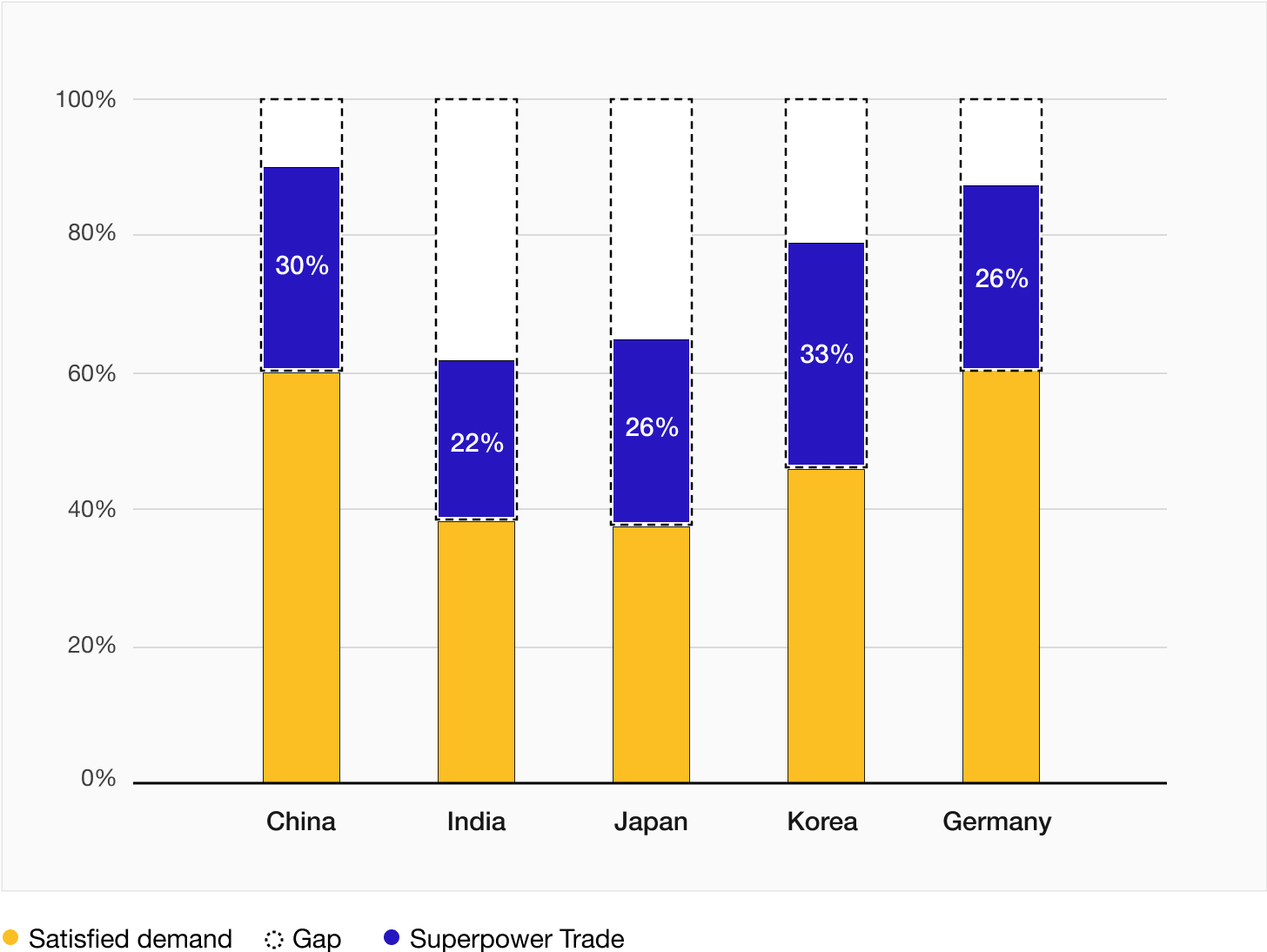
Key insights from the report:
A global energy shortfall
Major economies, including China, India, Japan, South Korea and Germany, are projected to face substantial clean energy shortfalls by mid-century. Without adequate domestic renewable resources, these nations will require innovative solutions to meet their projected energy demands
Australia’s comparative advantage
With world-leading solar and wind resources, abundant land, and a relatively small population, Australia has the capacity to produce renewable energy at scale and export it in the form of energy-intensive goods. This comparative advantage positions Australia as a natural leader in the energy global clean energy grade.
Economic and climate benefits
The superpower trade offers economic opportunities that far exceed the scale of traditional fossil fuel exports. Revenue from green exports could surpass coal and gas earnings by 6 to 8 times, driving the creation of high-value jobs and new industries. At full scale, Australia’s contributions to global decarbonisation could reduce global emissions by up to 9.6% of 2021 levels by 2060.
Reuben Finighan, The New Energy TradePotential trade revenues from superpower industries are together 6 to 8 times larger than typical combined coal and LNG export revenues.
The Australian superpower trade can contribute significantly to global climate mitigation
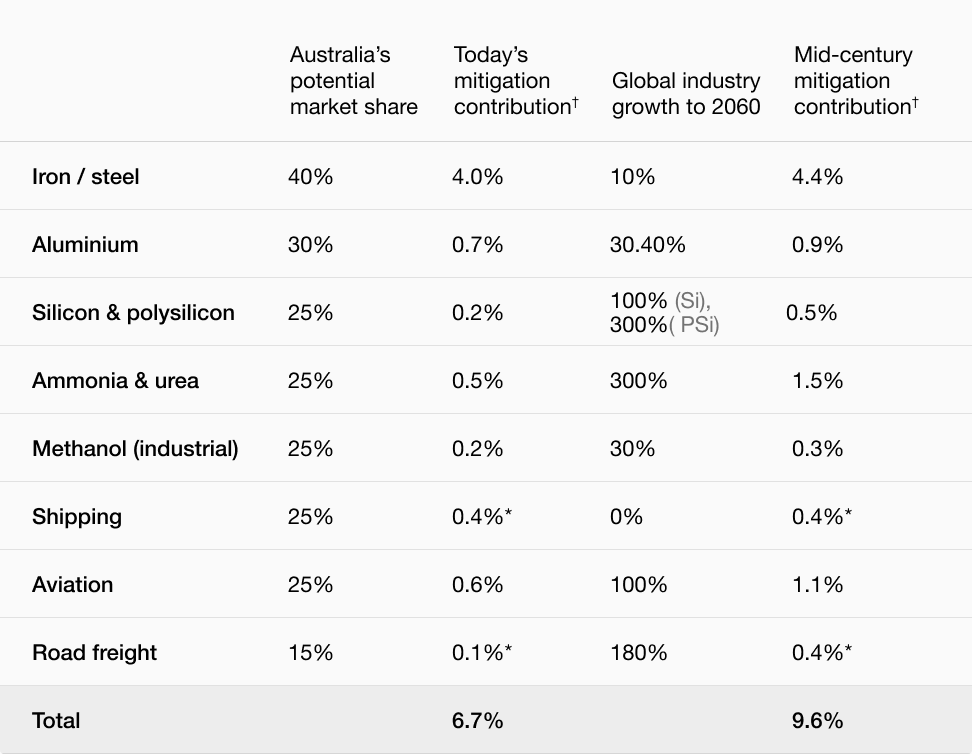
How can Australia grasp this opportunity?
The report identifies six critical steps for Australia to capture its share of the superpower trade:
- Address market failures by pricing CO2, supporting innovation and investing in transport and energy infrastructure.
- Allow market forces to guide the most cost-effective investments.
- Maintain open trade to secure Australia’s access to low-cost inputs and establish reliability as a source of critical materials.
- Manage debt and inflation to help restrain interest rates, which is essential for attracting necessary capital, including foreign investment.
- Accelerate green project approvals to stay competitive globally.
- Ensure policy certainty by building bipartisan support for reforms to provide investor confidence for long-term projects.
The more that Australia succeeds in resolving these issues, the greater the share of the superpower trade it will capture.

